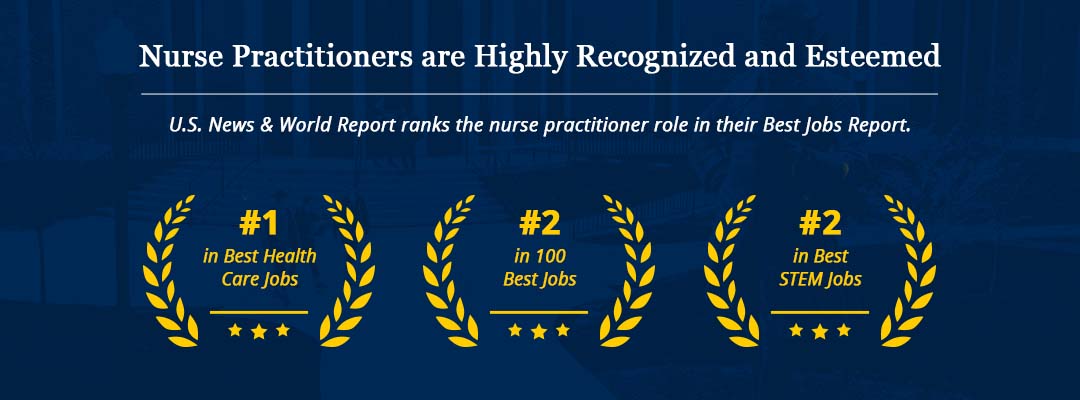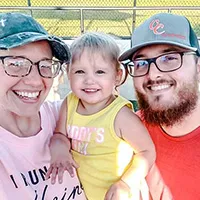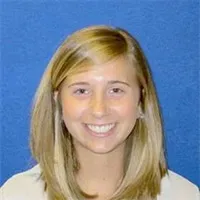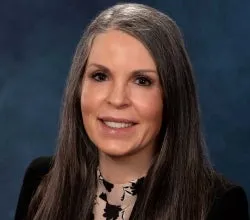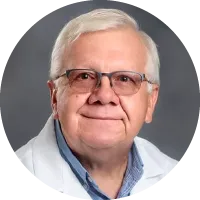Adult-Gerontology Primary Care Nurse Practitioner
Entrance points for the AGPCNP concentration:
Treat the Unique Needs of Adult Patients
Adult-Gerontology Primary Care Nurse Practitioners (AGPCNPs) deliver primary care to adolescents, adults, and the elderly, as they address the evolving health needs of patients across the adult lifespan.
Demand for providers specializing in adult care continues to grow. By 2034, individuals aged 65 and older are projected to outnumber children for the first time in U.S. history, highlighting the increasing need for focused care on aging populations.*
Wilkes University’s online MSN–AGPCNP prepares graduates to help meet this demand by developing the skills to:
- Assess, diagnose, and treat acute and chronic conditions across the adult lifespan
- Order and interpret diagnostic tests and develop treatment plans
- Manage care transitions across settings
- Provide patient and caregiver education to support long-term health and wellness
*U.S. Census Bureau
Online MSN - AGPCNP Admission Requirements
Applicants are reviewed on an individual basis and will be evaluated for admission based on the criteria for each program. These admission standards represent the minimum eligibility requirements for the program. Admission committee members reserve the right to request additional information from candidates for a more in-depth review of qualifications.
Master of Science in Nursing (MSN) – AGPCNP
- Bachelor’s degree in nursing (BSN) with a 3.0 GPA
- Unencumbered RN license*
- One year of clinical experience (by the start of the NP clinical courses)
- Resume
*Applications presenting a history of disciplinary action on professional licenses will be subject to an additional review by the Special Licensure Discrepancy Committee of the University.
State Authorizations
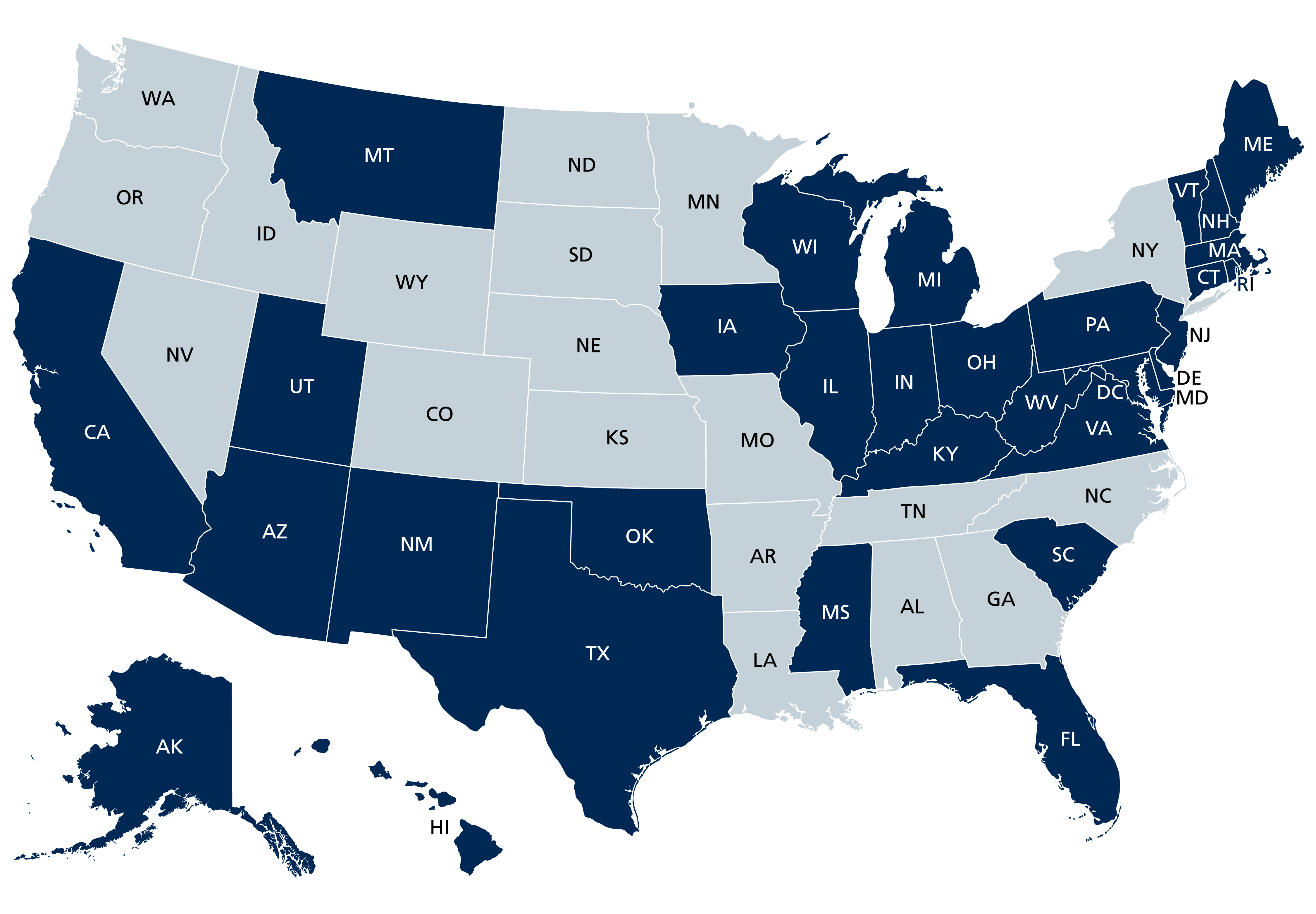
Please note that prior to beginning and continuing in any of the nursing programs with Wilkes University, you must be located in an authorized state and be licensed in the state where you intend to complete your clinical activities, per that state’s clinical requirements. Your location (which may be your state of residency) and clinical activity do not need to be in the same state, as long as Wilkes is authorized in both states.
Is a Master of Science in Nursing (MSN) – AGPCNP the right fit?
Explore Wilkes AGPCNP pathways for ADN/ASN and for MSN degree holders:
* The baccalaureate degree in nursing/master's degree in nursing/ Doctor of Nursing Practice and post-graduate/APRN certificate programs at Wilkes University are accredited by the Commission on Collegiate Nursing Education (www.ccneaccreditation.org)
Stress Less with Clinical Placement Support
Clinical practicums are an exciting opportunity for students to apply what they’ve learned in real-world settings. However, finding a local placement can be challenging, requiring significant time and effort to identify and secure clinical sites and preceptors.
We aim to take the stress out of the process by offering built-in clinical placement support—at no additional cost. Our team works diligently to secure high-quality placements that align with your goals and program guidelines, so you can focus on building your competencies as a nurse practitioner, not on navigating logistics.
Wilkes nurses have found success at leading healthcare providers including:
- Gelsinger
- Lehigh Valley Health Network
- St. Luke’s Health Network
While we cannot guarantee every clinical placement, our success rates consistently exceed the national average—highlighting our commitment to making the process as seamless as possible.
What Will You Learn During Clinicals?
Clinical placements are a cornerstone of the Wilkes MSN-NP program, offering students hands-on opportunities to apply advanced nursing skills in real-world settings. You’ll develop expertise in conducting comprehensive patient assessments, creating evidence-based care plans, managing chronic conditions, promoting wellness, and more.
Clinicals also emphasize leadership, teamwork, and patient-centered care, with opportunities to collaborate across disciplines and advocate. By the end of your clinical experience, you’ll be prepared to deliver specialized, high-quality care as a confident nurse practitioner.
As an MSN-NP student, here’s what you can expect during clinicals:
- Experience diverse healthcare settings, from hospitals to community clinics.
- Work with varied patient populations that align with your goals.
- Receive personalized support from Wilkes faculty, your Student Success Coach, and an on-site preceptor.
- Gain 1:1 mentorship to enhance your clinical expertise and confidence.
- Build valuable professional networks within your chosen specialty.
Sample Curriculum and Structure
Master of Science in Nursing – Adult-Gerontology Primary Care
To see the full program curriculum, access your free program guide.
Time to Complete
2 years
Courses
14 courses
Clinical Hours
500 Hours
This course provides an overview of the normal physiologic and pathologic mechanisms of disease and serves as one primary component of the foundation for clinical assessment, decision-making, and management. The course will prepare the advanced practice nurse for interpreting changes in normal function that results in symptoms indicative of illness in patients across the lifespan. (Credits: 3)
This course provides the basic principles of pharmacodynamics, pharmacokinetics, and pharmacotherapeutics for broad categories of drugs. Purpose of action, common interactions and contraindications of major drug categories are highlighted. Case studies are integrated to provide students the opportunity to demonstrate application of pharmacological theory in advancing nursing practice. (Credits: 3)
The nurse practitioner will develop processes for formulating differential diagnoses of acute and chronic physical and mental illnesses in the primary care setting across the life span. A case-study approach is integrated to prepare students for management of health status of patients through the implementation of strategies specific to the synthesis of data from multiple sources that promote quality of care outcomes for patients. (Pre-Requisites: NSG-530, NSG-533; Credits: 2)
This course presents an overview of the full and comprehensive health assessment of patients across the life span. Emphasis on multiple aspects of assessment including physical, functional, and mental health assessment along with transcultural variations, will prepare the student for advanced nursing practice.
This course is designed to introduce the advanced practice nursing student to the issues of culturally diverse, rural and underserved populations. The theory can be integrated into clinical practice for patients and families in primary care settings to promote understanding of differences and issues that impact comprehensive planning of health care services. (Credits: 2)
Get More Program Details
- Applications are currently being accepted for next intake
How do Wilkes nurses demonstrate excellence?
By translating their knowledge into success on certification exams—proving they are confident and competent when it matters most. The table below highlights certification pass rates for Wilkes nurses across NP tracks, consistently exceeding national averages in recent years.
| YEAR 2023 | ||
|---|---|---|
| Program | Certification Pass Rate: All Takers | National Pass Rate |
| Psychiatric/Mental Health Nurse Practitioner (PMHNP) | 95.4% | 90% |
| Family Nurse Practitioner (FNP) | 84% | *74% |
| Adult-Gerontology Primary Care Nurse Practitioner (AGPCNP) | 91.6% | 80% |
*AANP National Pass Rate 2022, most recent data available
Read More About Wilkes Online MSN
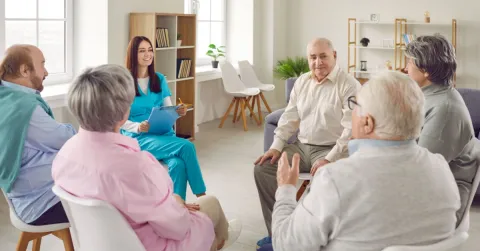
The Role of PMHNPs in Modern Healthcare
Discover how PMHNPs are shaping modern healthcare by bridging mental and physical health for better patient care. Read More

Salary Trends and Job Outlook for Nurses in Pennsylvania - Wilkes MSN
Explore MSN-PMHNP programs in PA. Learn about nursing jobs, salaries, & continuing education for career growth. Read More

Top Healthcare Employers for Nurse Practitioners in Pennsylvania
Pennsylvania has a high demand for nurse practitioners and NP graduates due to its aging population. Top hospitals, psychiatric centers, and nursing homes offer great career opportunities. Read More
Media
- Image
![Eugene Lucas]()
Dr. Eugene Lucas
Our PMHNP Concentration Coordinator has been elected to the American Association of Nurse Practitioners as the Liaison from the state of PA. These exemplary nurse practitioner (NP) leaders will set the strategic direction for the association and play an instrumental role in guiding the profession forward.
- Image
![Julie Knapp]()
Julie Knapp
Congratulations to Julie Knapp, one of our online MSN-AGPCNP students, who is the honored recipient of the Nurses Educational Funds (NEF) Edith Pritchard Scholarship for 2023!



